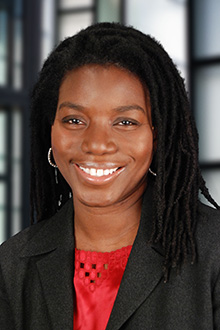New York Child Victims Act Ruled Constitutional by State Court Judge

New York, N.Y. (May 14, 2020) - A New York State judge has denied a motion by a Nassau County diocese to dismiss 44 complaints filed against it under New York’s Child Victims Act (CVA), rejecting the church’s argument the law violates the Due Process Clause of New York’s constitution.
The CVA was signed by Governor Andrew Cuomo on February 14, 2019, which (1) extended the statute of limitations on criminal cases involving certain sex offenses against children under 18; (2) extended the time in which civil actions based upon such criminal conduct may be brought until the child victim reaches 55 years old; and (3) opened a one-year window reviving civil actions for which the statute of limitations has run commencing August 14, 2019. On May 8, 2020, Governor Cuomo extended the deadline for filing civil claims under the CVA to January 14, 2021, citing the coronavirus pandemic and reduction in court services as a hindrance to survivors’ ability to file claims.
On May 13, 2020, Justice Steven M. Jaeger issued an order ruling a court need only to determine the legislation was a reasonable measure to address an injustice in order to find it satisfies the due process clause.
The diocese argued that the New York Legislature did not have the authority to revive the sexual assault claims despite the New York Court of Appeals holding in In the Matter of World Trade Ctr. Lower Manhattan Disaster Site Litigation., 30 N.Y.3d 377, 400 (2017), “a claim-revival statute will satisfy the Due Process Clause of the State Constitution if it was enacted as a reasonable response in order to remedy an injustice.” The diocese argued the ruling by the Court of Appeals was not applicable to the CVA as the plaintiffs were not prevented from asserting timely claims when the alleged abuse occurred.
In 2006, the New York Court of Appeals ruled in Zumpano v. Quinn, 6 NY3d 666 (2006), a consolidated appeal about claims arising from sexual abuse by priests in two dioceses, that although alleged sexual conduct was reprehensible, “absent relief from the Legislature [the claims] will remain unredressed,” and “any exception to be made to allow these types of claims to proceed outside of the applicable statutes of limitations would be for the Legislature, as other states have done.” Id. at 677.
In 2017, the Court of Appeals addressed the due process issue as to whether the “serious injustice” standard of review articulated in Gallewski v. H. Hentz & Co., 301 N.Y. 164, 174 (1950) or the less stringent ‘reasonableness’ standard of review articulated in Robinson v. Robins Dry Dock & Repair Co., 238 N.Y. 271 (1924) governs the merits of a New York State Due Process Clause challenge to a claim revival statute[.]” In the Matter of World Trade Ctr., 30 NY3d at 394. The Court of Appeals “articulated a uniform standard of review” that a claim-revival statute satisfies the Due Process Clause “if it was enacted as a reasonable response in order to remedy an injustice.” Id. at 400. Simply put, in order to find that the Due Process Clause is satisfied, a court need only determine the revival statute was a reasonable measure to address an injustice. See also, Sweener v. Saint-Gobain Performance Plastics Corp., 2018 WL 748742 (N.D.N.Y. Feb. 7, 2018).
In the CVA’s legislative history, it is noted that the CVA was enacted to “finally allow justice for past and future survivors of child sexual abuse, help the public identify hidden child predators through civil litigation discovery, and shift the significant and lasting costs of child sexual abuse to the responsible parties.” 2019 New York Senate Bill No. 2440; 2019 Legis. Bill Hist. NY S.B. 2440.
Further, in passing the CVA, the legislature acknowledged “the unique character of sex crimes against children, which can have a multitude of effects upon victims, including being justifiably delayed in otherwise timely taking action against their abusers and/or those who facilitated their abuse.” 2019 New York Assembly Bill No. 2683; 2019 Legis. Bill Hist. NY A.B. 2683.
The plaintiffs’ complaint in the Nassau County diocese case includes counts of negligence, negligent training and supervision of employees, and negligent retention of employees. The diocese argued that the claims for alleged misconduct other than its own intentional or negligent misconduct should remain time-barred, and that the court should ignore the CVA’s sweeping statute of limitations as not persuasive, adding that it would lead to unreasonable results given the intention of the state legislature. However, Justice Jaeger found the “the Legislature expressly revived ‘every’ claim or cause of action brought against a ‘party’ so long as the claim alleges intentional or negligent conduct by a ‘person’ causing injury as a result of specific child sexual abuse offenses.”
Notably, the diocese cited no cases where a New York court struck down a claim-revival statute, nor was the Court of Appeals aware of any. Justice Jaeger cited to Torrey v. Portville Central School, et al., 2020 NY Slip Op 50244(U) (Sup. Ct. Cattagarus Co., February 21, 2020), a case where a school also attacked the CVA as violating the Due Process Clause. Justice Chimes, in Torrey, held “[t]his legislation would open the doors of injustice to the thousands of survivors of child sexual abuse in New York State by prospectively extending the statute of limitations.” Therefore, Justice Jaeger ruled “ased on the legislative history, the court finds the Child Victims Act is a reasonable response to remedy the injustice of past child sexual abuse.” “Accordingly, [the CVA] does not violate [the diocese’s] right to due process under the New York state constitution and that branch of the motion to dismiss is denied.”
The diocese has yet to appeal Justice Jaeger’s decision.
If you have any questions about these or any other matters, please do not hesitate to contact the authors of this alert.
Authors:
Karen L. Campbell, Partner
Hassan Popal, Associate
